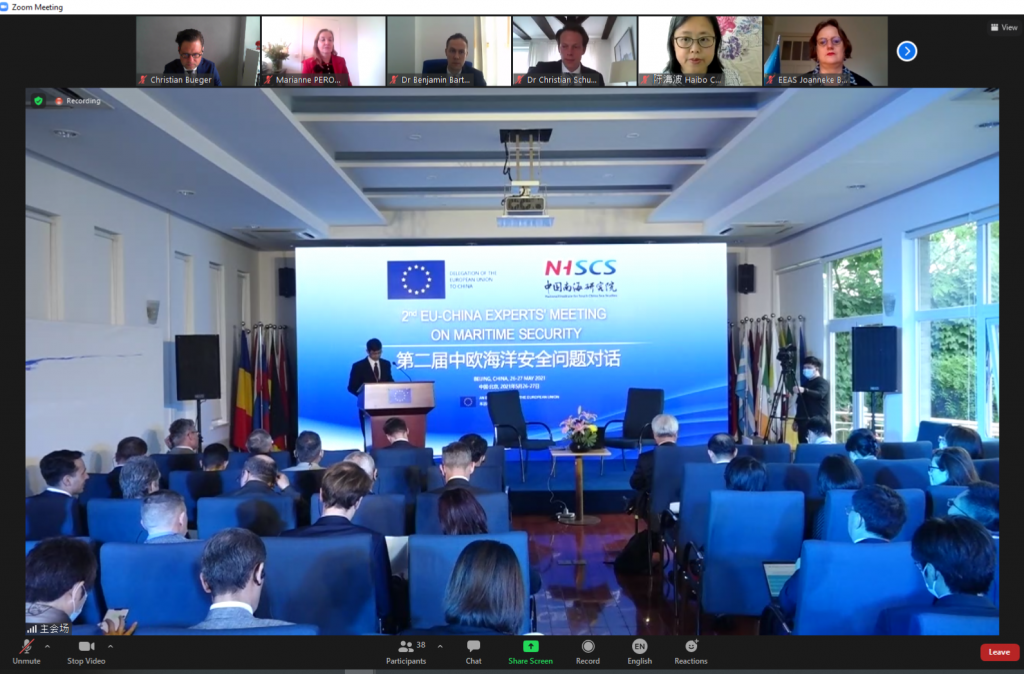The Shared Awareness and Deconfliction (SHADE) mechanism is a brainchild of the responses to piracy off the coast of Somalia. It is the key instrument through which the various navies coordinate each others activities and arrange for the International Coordinated Transit Corridor, and convoys and patrols in the Western Indian Ocean region. It is also the main mechanism through which the transport industry and navies collaborate on a strategic level. The successful coordination in SHADE is one of the key factors explaining the decline of Somali piracy.

On the 27th of May, the 48th SHADE meeting took place as usually held in Bahrain. This time it was complemented by an online participation platform through which I had the honor to address the participants.
At the meeting, I presented some of the key insights from the SafeSeas survey of regional maritime security alignments in the Indo Pacific. I provided an overview and emphasized that institutional proliferation is problematic. In consequence, SHADE must ask how it sits in this environment, and how it wants to continue its work in the long run.
This is ever more important as SHADE in the meantime is a platform for discussing various maritime security issues. As reflected in the presentations at the meeting this includes, illegal fishing, smuggling, or the security situations around the Yemeni coast and Strait of Hormuz.

